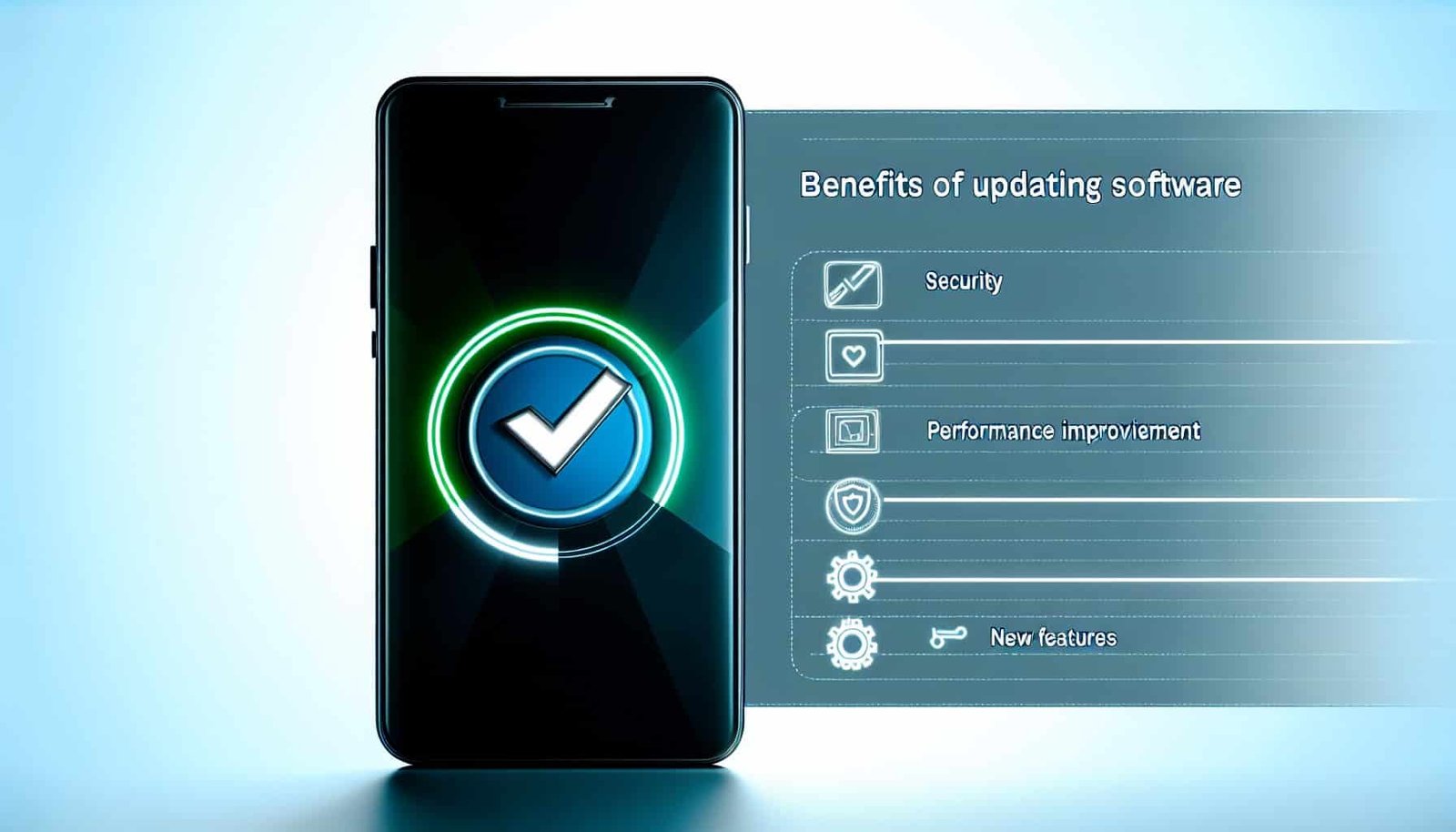
How Important Are Software Updates for Smartphone Longevity?
Smartphones have become an integral part of our daily lives, offering everything from communication and entertainment to banking and navigation. Given their importance, it is essential for smartphone users to consider how to keep their devices running smoothly for as long as possible. One of the most crucial aspects of maintaining a smartphone’s longevity is regular software updates. But how important are these updates, really? Do they just add new features, or do they play a significant role in prolonging the life of your device? In this article, we will explore the importance of software updates for smartphone longevity and why they should never be overlooked.
Table of Contents
ToggleWhat Are Software Updates?
Software updates are new versions of the operating system (OS) or apps that improve a smartphone’s functionality, fix bugs, enhance security, and sometimes introduce new features. Smartphone manufacturers like Apple, Samsung, Google, and others release these updates periodically to keep the device running smoothly and safely.
Updates typically come in two types: major updates and minor updates.
- Major updates are released less frequently and often introduce new features, a revamped user interface, or significant performance improvements. These updates may also change how the operating system interacts with apps or include new functionalities like advanced AI features, gesture controls, or augmented reality (AR) capabilities.
- Minor updates usually focus on fixing bugs, addressing security vulnerabilities, and enhancing the performance of the smartphone. These updates are more frequent and ensure that the device stays stable and protected from the latest threats.
The Role of Software Updates in Smartphone Longevity
1. Enhancing Security
One of the most critical reasons to keep your smartphone updated is for security. As smartphone usage grows, they have become prime targets for hackers, cybercriminals, and malware creators. Software vulnerabilities can expose your personal data, banking information, or sensitive documents to malicious attacks.
Manufacturers and developers constantly discover potential vulnerabilities in the operating system or apps, which can be exploited by attackers. By regularly updating the software on your phone, you are ensuring that the latest security patches and fixes are installed, making your device much harder to compromise.
For example, Google and Apple release frequent security patches to address newly discovered threats like viruses, malware, or bugs that could leave users vulnerable to attacks. Without these updates, your device remains susceptible to issues such as data breaches, identity theft, or unauthorized access to private information.
2. Fixing Bugs and Improving Performance
Another significant benefit of software updates is that they address bugs and performance issues that may arise over time. Like all technology, smartphones can develop glitches, crashes, or slowdowns after prolonged use. These problems can be a result of the OS not being optimized, or the phone’s apps not running as smoothly as they once did.
Software updates often come with performance enhancements that improve speed and fix stability issues. For example, a laggy touchscreen, unresponsive apps, or slow load times might be resolved through a software update. Over time, regular updates can prevent your device from feeling sluggish, which is crucial for longevity, especially as the device ages.
As phones get older, their performance naturally starts to degrade due to a variety of reasons, including increased usage and wear on hardware components. While software updates may not prevent physical wear and tear, they help maintain optimal performance for as long as possible, potentially extending the usability of the device.
3. New Features and Functionalities
With every software update, smartphone manufacturers typically introduce new features to improve the overall user experience. These features can range from minor interface tweaks to substantial changes that redefine how you interact with your device. Even for older devices, these updates can offer a refreshed experience, making the device feel newer and more exciting.
For example, Apple’s iOS updates frequently bring features like new camera capabilities, privacy tools, and customizable widgets. Samsung has also introduced features like advanced camera modes and One UI design improvements through its software updates. These enhancements not only make the smartphone more enjoyable to use but also ensure that the device remains relevant in the fast-moving world of mobile technology.
While a phone’s hardware may become outdated over time, software updates can help a device stay competitive in terms of features. They allow older smartphones to continue benefiting from the latest innovations in software, ensuring that users get the most out of their device for as long as possible.
4. Ensuring Compatibility with New Apps
As smartphones age, they may struggle to run the latest apps or be unable to support newly developed technologies. This is often due to software incompatibility, as newer versions of apps require up-to-date OS versions to run smoothly.
With regular software updates, your device ensures it remains compatible with the latest apps and features. Without updates, apps may become unstable, slow, or even stop working altogether. This can be frustrating, especially when trying to use new applications for work, entertainment, or personal productivity.
By keeping your software up to date, you ensure that your phone remains compatible with the newest apps, making your smartphone more versatile and future-proof.
5. Battery Life and Efficiency
Over time, smartphone batteries can degrade, leading to shorter usage times between charges. However, software updates can have a significant impact on battery efficiency. Manufacturers often fine-tune the operating system to optimize power consumption, reducing battery drain and extending battery life.
For instance, Apple’s iOS updates include optimizations that improve how apps use power in the background, leading to better battery performance on older models. Similarly, Android updates often come with efficiency improvements to minimize excessive battery usage, which can help users get more out of each charge.
For older devices, battery performance may not be as good as it was when the device was new, but through regular software updates, manufacturers aim to maximize battery efficiency, ultimately contributing to the device’s overall longevity.
6. Maintaining Value
For those who are considering selling or trading in their old phone for a new one, keeping the device updated can help maintain its resale value. A phone that runs the latest software is often more attractive to buyers, as it suggests the device has been well-maintained and is up-to-date with the latest features and security protocols.
By keeping your smartphone updated, you ensure that potential buyers or trade-in services will see the device as a good investment, allowing you to get more value when upgrading to a newer model.
Risks of Delaying Software Updates
While it may seem harmless to delay software updates, especially when they involve large files or require a reboot, skipping updates can have consequences. Failure to install updates can lead to:
- Security vulnerabilities that expose your data to cyberattacks.
- Performance issues, including slower speeds and more frequent crashes.
- App incompatibilities, making it difficult to use the latest software or install essential updates.
- Potential system instability, which could even render your device unusable in extreme cases.
Conclusion
In today’s rapidly changing technological landscape, keeping your smartphone updated is one of the most effective ways to ensure its longevity. From enhanced security and performance to new features and better battery life, software updates play a crucial role in maximizing the lifespan of your device. Regular updates allow your phone to stay relevant, compatible with the latest apps, and safe from emerging threats, ensuring that it continues to serve you well for years to come.
If you want to get the most out of your smartphone, make it a priority to install software updates as soon as they are available. This simple yet crucial step will help you preserve your device’s performance and security, keeping it running like new for as long as possible.


